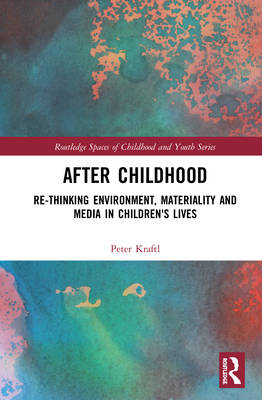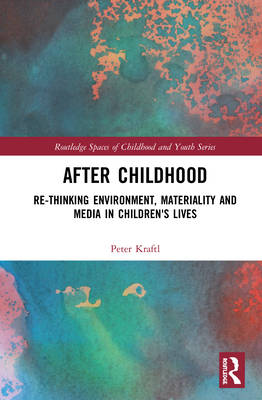
- Afhalen na 1 uur in een winkel met voorraad
- Gratis thuislevering in België vanaf € 30
- Ruim aanbod met 7 miljoen producten
- Afhalen na 1 uur in een winkel met voorraad
- Gratis thuislevering in België vanaf € 30
- Ruim aanbod met 7 miljoen producten
Omschrijving
This book offers a new approach for theorising and undertaking childhood research. It combines insights from childhood and generational studies with object-oriented ontologies, new materialisms, critical race and gender theories to address a range of key, intractable challenges facing children and young people.
Bringing together traditional social-scientific research methods with techniques from digital media studies, archaeology, environmental nanoscience and the visual arts, After Childhood: Re-thinking Environment, Materiality and Media in Children's Lives presents a way of doing childhood research that sees children move in and out of focus. In doing so, children and their experiences are not completely displaced; rather, new perspectives on concerns facing children around the world are unravelled which dominant approaches to childhood studies have not yet fully addressed. The book draws on the author's detailed case studies from his research in historical and geographical contexts. Examples range from British children's engagement with plastics, energy and other matter, to the positioning of diverse Brazilian young people in environmental and resource challenges, and from archaeological evidence about childhoods in the USA and Europe to the global circulation of children's toys through digital media.
The book will appeal to human geographers, sociologists, anthropologists, education studies scholars and others working in the interdisciplinary field of childhood studies, as well as to anyone looking for a range of novel, interdisciplinary frames for thinking about childhood.
Specificaties
Betrokkenen
- Auteur(s):
- Uitgeverij:
Inhoud
- Aantal bladzijden:
- 236
- Taal:
- Engels
- Reeks:
Eigenschappen
- Productcode (EAN):
- 9781138088245
- Verschijningsdatum:
- 8/04/2020
- Uitvoering:
- Hardcover
- Formaat:
- Genaaid
- Afmetingen:
- 160 mm x 239 mm
- Gewicht:
- 498 g

Alleen bij Standaard Boekhandel
Beoordelingen
We publiceren alleen reviews die voldoen aan de voorwaarden voor reviews. Bekijk onze voorwaarden voor reviews.











